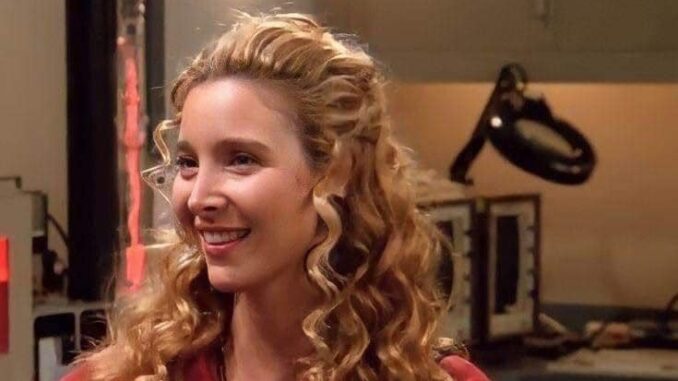
In the pantheon of iconic television characters, Phoebe Buffay from “Friends” stands out not just for her quirky personality and unforgettable one-liners but also for her unique charm, particularly embodied in her signature curly hair.
The phrase “You can be pretty, but you can never be curly hair Phoebe Buffay pretty!” captures the essence of what makes Phoebe such a beloved character, blending beauty with individuality, humor, and resilience. Phoebe Buffay, portrayed brilliantly by Lisa Kudrow, is a character who defies conventional standards of beauty. From her eccentric fashion sense to her unpredictable behavior, she is unapologetically herself. Her curly hair is more than just a hairstyle; it symbolizes her free spirit and authenticity. In a world where characters often conform to idealized beauty norms, Phoebe stands as a refreshing reminder that true beauty comes from within and is often reflected in one’s quirks and idiosyncrasies.

Phoebe’s hair is a visual representation of her character’s journey. Throughout the series, she faces numerous challenges—abandonment, loss, and personal struggles—but she approaches each obstacle with humor and grace. Her curls, wild and untamed, reflect her resilience and ability to embrace life’s ups and downs. They are a testament to her strength, showing that she refuses to be defined by societal expectations. In a way, her hair serves as a metaphor for her life: beautiful, chaotic, and utterly genuine.
Moreover, Phoebe’s confidence in her appearance and her refusal to conform to traditional standards of beauty is empowering. She often celebrates her uniqueness, reminding viewers that it’s okay to stand out. Her memorable songs, like “Smelly Cat,” and her quirky personality are extensions of this authenticity. When she walks into a room, her presence is magnetic—not just because of her physical appearance but due to her vibrant personality and unwavering self-acceptance.
In a broader cultural context, Phoebe Buffay has inspired countless fans to embrace their individuality. Her character resonates particularly with those who may feel like outsiders or who struggle with self-acceptance. By showcasing her authenticity, Phoebe encourages viewers to celebrate their own quirks and imperfections. She demonstrates that beauty is not a one-size-fits-all concept; it is multifaceted and deeply personal.
Furthermore, Phoebe’s curly hair has become emblematic of a particular era in television—a time when characters were celebrated for their flaws and idiosyncrasies rather than solely for their beauty. It reflects the late ’90s and early 2000s cultural shift towards more relatable and diverse representations of women on screen. Phoebe’s legacy continues to influence contemporary television, where characters are increasingly valued for their complexity and individuality.
In conclusion, the phrase “You can be pretty, but you can never be curly hair Phoebe Buffay pretty!” encapsulates the magic of Phoebe Buffay as a character. She represents a kind of beauty that transcends physical appearance, embracing individuality, humor, and resilience. Her journey teaches us that true beauty lies in being unapologetically ourselves, celebrating our uniqueness, and navigating life with authenticity and joy. As we continue to adore her character, we are reminded to embrace our own quirks, just as Phoebe has taught us to do.
